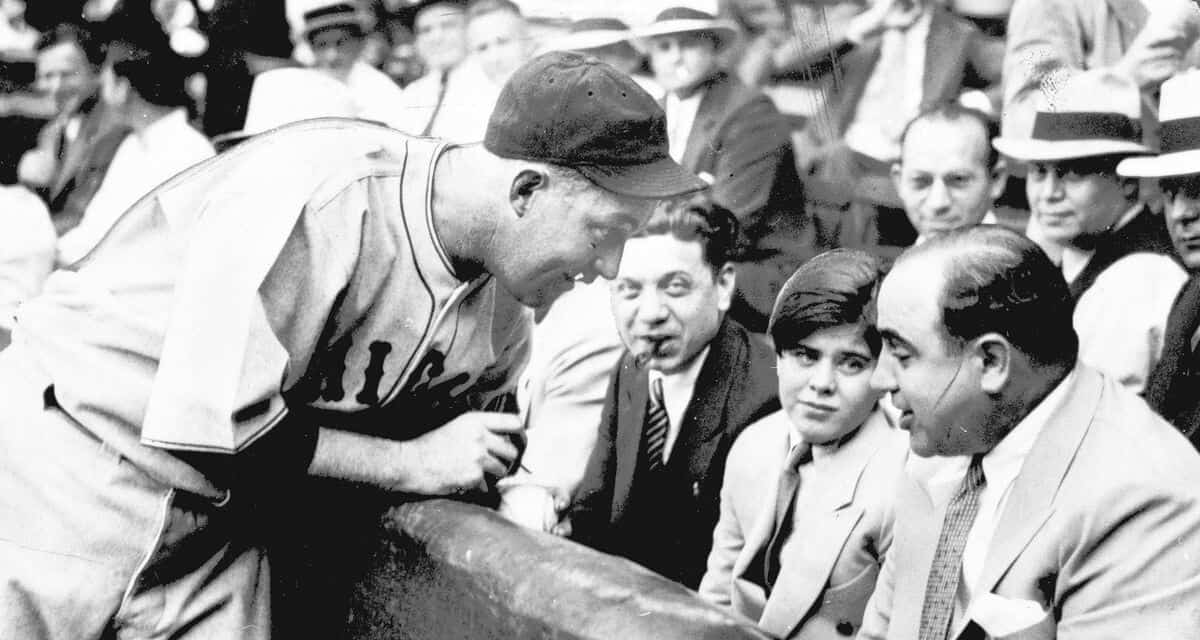For children born into the families of criminals, life presents a daunting prospect. None more so than in organized crime, especially the Italian Mafia. The Mafia is based on the concept of family. Protection of and devotion to the family is paramount (for the purposes here, Mafia refers to the Italian-American organization which calls itself the Cosa Nostra). The Mafia in the United States emerged in the late 19th century. Springing up in Italian-American neighborhoods, it grew in the Northeast and in other major cities, including New Orleans, Chicago, St. Louis, Detroit, and other areas. But in the public mind, it has long been mainly associated with New York and New Jersey. It was a fictional television series which largely introduced life in a Mafia family, HBO’s The Sopranos. The program combined organized crime families fighting each other with raising a suburban family in an affluent New Jersey neighborhood.

Though it was fiction, The Sopranos presented life for a family of a Mafia member in a manner never presented before. Others had merely nodded at it. The Godfather, in which it appears as if Don Vito’s wife is unaware of his doings, and Michael repeatedly warns his wife to never ask about his business for example. Goodfellas presented the families of mobsters socializing, vacationing, and attending celebrations. But little was said of the children of the mobsters. Goodfellas was based on the book Wise Guy, by Nicholas Pileggi, who extensively interviewed Henry Hill for the basis of the story. Hill, then in the Federal WITSEC program, chose the Mafia life as a child. Later he submitted his own children to it, and eventually to a life on the run. Here are some examples of growing up in a Mafia family, from some who chose the life, and some born into it.

1. Henry Hill aspired to join the Mafia as a child
Born in Manhattan, Henry Hill was raised in a large, working-class family in the Brownsville neighborhood of Brooklyn. His father, an electrician of Irish birth, and his mother of Sicilian parents struggled to provide for their seven children. Henry did not do well in school; much later in life, he was diagnosed with dyslexia. When Hill was a young child he spent hours watching the cabstand across the street from his home. The attraction, to Hill anyway, came from gleaming Cadillacs, Lincolns, and other large cars, and the flashy suits worn by the men who rode in them. The men, most of them large in girth, wore gold and platinum watches, cufflinks, stickpins and tie pins, and heavy jeweled rings and bracelets. Among them was Paul Vario, a caporegime (captain), who ran soldiers and associates in the Lucchese crime family.
At the age of eleven, Hill entered the stand, looking for work. Vito Vario, younger brother of Paul, was impressed with the hustle exhibited by the youngster. Hill ran errands, for various members of the mob from the cabstand, as well as other businesses owned by members of the Vario family. Despite his father’s objections, and according to Hill his frequent beatings at his father’s hands, the Varios became his de facto family. He spent more and more time with the Varios, less at school and in his own home. Hill’s attraction to the life of the mobsters grew to include the respect shown to them by others in the neighborhood, including the police. At the age of 14, the Varios presented Hill with a union card, provided him a no-show bricklayer’s job, and allowed him to keep a portion of the salary is paid.

